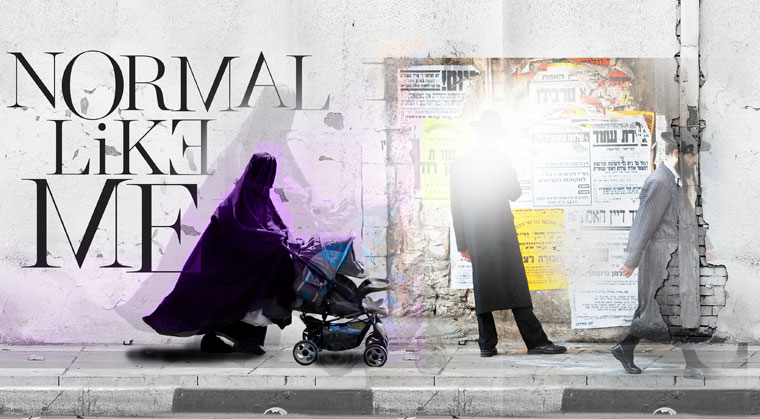Normal Like Me: Chapter 50


I
n the hall on Rechov Yeshayahu, the chairs were lined up in rows.
“When is Rabbanit Bar Yeshurun supposed to arrive from Tiveria?” someone asked.
“She’s speaking at three.”
Rav Yosef and Rabbanit Chana would be speaking before her, and at four, the Chizuk Fair would open to the general public.
Udel and Miriam were bent over the tables, arranging the items for sale: a big selection of shalim, redidim with face coverings, and lightweight cotton redidim for summer.
In another corner, someone was silently setting out piles of conical and square-shaped forms to be worn under the redid, in order to completely hide the contours of the head. Spokeswomen for the group were setting up their information stations; at another stand, volunteers would demonstrate the proper way to tie a headscarf. The ladies of the kehillah were pinning high hopes on this event.
“K’ohalei Kedar, kayeriyot Shlomo!” Rav Yosef shouted excitedly from behind the mechitzah. “K’ohalei Kedar… I turned black among the women… kayeriyot Shlomo… with my good deeds! My mother’s sons were incensed with me… and we believers know that even when my mother’s sons, those who are closest to me, treat me with disdain, that only goes to show that ‘I am black but comely’ — swathed in black we may be, but we know that our deeds make us all the more beloved on High.”
Sarah:
“Hello?”
“Hello,” I answered reluctantly. Itzik can’t understand my compulsion to answer the phone every time it rings. To him, it really doesn’t matter. But to me it does.
Even now, on this gorgeous hiking trail in Timna, I couldn’t resist the urge to take the call.
“You’re Sarah, right? Listen, you don’t know me,” said a shaky voice over the phone. “I’m a cousin of Udel’s. I understand that you were with her in that cul— in that group she belongs to.”
“Yes, I was.” As we came around a bend, high cliffs rose up before my eyes. Itzik was busy examining some sand at the side of the path. He picked up a handful.
“So I— we need your help,” the woman on the phone was saying. “We’ve got to get Udel out of there, like you got out.”
“The green bits are copper,” said Itzik, holding his hand out to show me. “The red is iron, and the sparkly ones are quartz. Look how many minerals are here, in one handful of sand!”
I nodded at him, as if he were a little boy showing Mommy a picture he drew while she’s talking on the phone. He let the grains of sand fall through his fingers.
“They’re making some kind of chizuk rally this evening. Something about uniting with other groups and strengthening their ranks,” said Udel’s cousin.
“Who’s making a rally?” I asked.
“Oh, I see you’re really out of touch with them… Rabbanit Chana’s kehillah, together with other Shawl Lady groups from Beit Shemesh and Bnei Brak.”
“Nu, so let them strengthen their ranks,” I said. I was on my first tiyul with my new husband, and for all I cared, all the groups in the world could hold rallies and strengthen their ranks as much as they liked.
(Excerpted from Mishpacha, Issue 716)
Oops! We could not locate your form.



